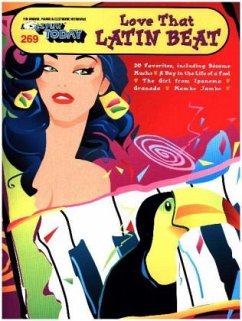
Sistah MC Droppin' Rhymes with a Beat: Rap, Rhetoric and Resistance
Versandkostenfrei!
Versandfertig in 6-10 Tagen
52,99 €
inkl. MwSt.

PAYBACK Punkte
26 °P sammeln!
For over three decades rap music has served as thelyrical mouthpiece for another disenfranchisedsegment of the African American society-- young Blackwomen. Although rap has been largely a male dominatedgenre, Black women have also used it to drop theirrhymes and articulately channel resistance via theirown funky beat. This book outlines the challengesAfrican American women have faced in their collectivehistoric quest to establish and sustain their ownvoice and ultimately reveals that using lyricsas rhetoric has helped African American womenestablish and maintain such a voice. This workincludes...
For over three decades rap music has served as the
lyrical mouthpiece for another disenfranchised
segment of the African American society-- young Black
women. Although rap has been largely a male dominated
genre, Black women have also used it to drop their
rhymes and articulately channel resistance via their
own funky beat. This book outlines the challenges
African American women have faced in their collective
historic quest to establish and sustain their own
voice and ultimately reveals that using lyrics
as rhetoric has helped African American women
establish and maintain such a voice. This work
includes a line by line examination of 260 rap songs
performed by six popular female rap/hip hop solo
artists: MC Lyte, Queen Latifah, Lauryn Hill, Lil
Kim, Missy Elliot and Eve. Additionally 300 young
African American females took part in a survey to
weigh in on a commonly held perception that black
female rappers served as spokeswomen for young
African American females. Popular music enthusiasts
and hip-hop purists/scholars will find this book
gives a new empirical twist on examining black
women s postmodern resistance in a genre borne out of
resistance.
lyrical mouthpiece for another disenfranchised
segment of the African American society-- young Black
women. Although rap has been largely a male dominated
genre, Black women have also used it to drop their
rhymes and articulately channel resistance via their
own funky beat. This book outlines the challenges
African American women have faced in their collective
historic quest to establish and sustain their own
voice and ultimately reveals that using lyrics
as rhetoric has helped African American women
establish and maintain such a voice. This work
includes a line by line examination of 260 rap songs
performed by six popular female rap/hip hop solo
artists: MC Lyte, Queen Latifah, Lauryn Hill, Lil
Kim, Missy Elliot and Eve. Additionally 300 young
African American females took part in a survey to
weigh in on a commonly held perception that black
female rappers served as spokeswomen for young
African American females. Popular music enthusiasts
and hip-hop purists/scholars will find this book
gives a new empirical twist on examining black
women s postmodern resistance in a genre borne out of
resistance.












